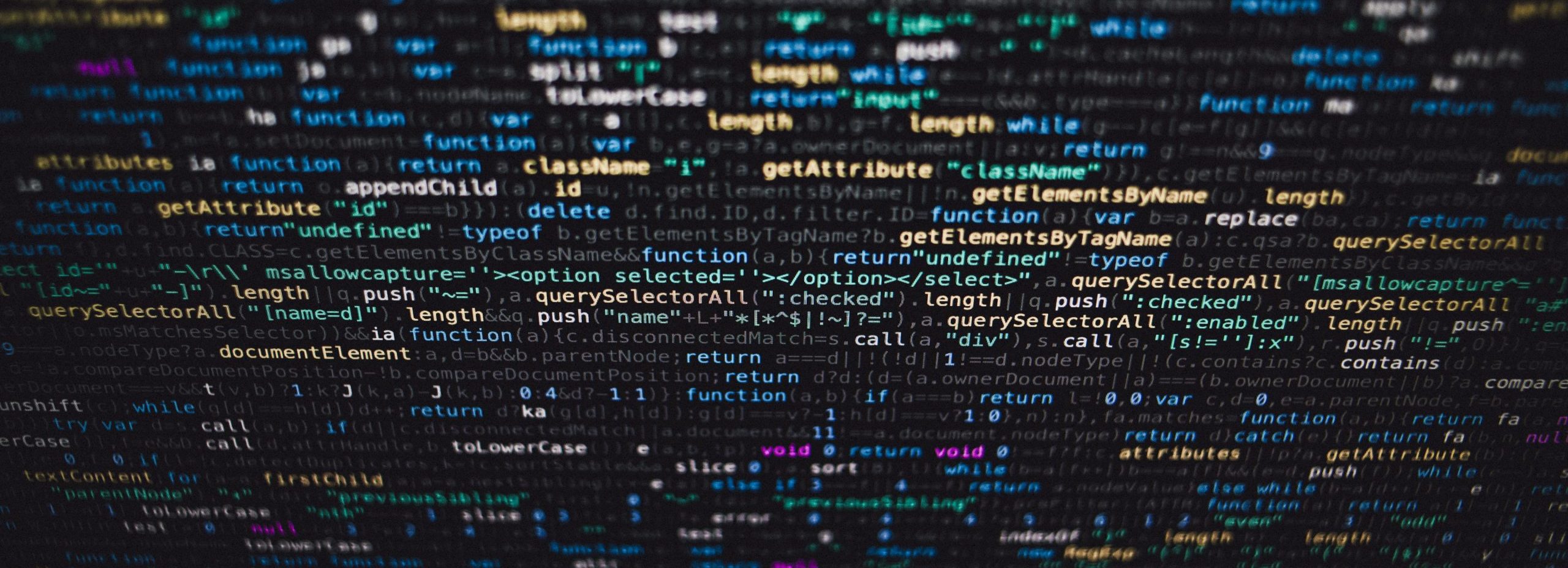Event description
Some research fields force us to look explicitly at computer code, for example, when we study coding practices, programmers or software engineers. At the same time, code is ubiquitous today, and also present in more subtle forms, as it is the ground for every digital phenomenon. Consequently, code is nothing we encounter in our research by accident or chance, but a perspective we have to include for a necessary understanding of digital practices. Thus, code is not a defined category but rather a methodological perspective that should be considered in every anthropology of the digital. With the introduction of Critical Code Studies, Software Studies, and Critical Algorithm Studies, computer code has become an integral subject of study in the humanities and social sciences. Drawing from this, we aim to develop concise methods for ethnographic research with code.
Code is part of a complex and constantly evolving system. It never exists as a single entity but is embedded in socio-material networks consisting of various human and non-human entities. Ethnography, then, is uniquely suited to its study. Theories in cultural anthropology also present fertile ground for the development of methods for ethnographers to apply in the field. Although code has drawn the attention of cultural anthropologists, and appeared as a focal point in recent digital ethnographies, the groundwork for establishing useful methodological approaches, whether through adaptation or invention, is still being laid. In this workshop we want to bring together those working in ethnography to discuss their methods, challenges and innovations in order to develop a methodological toolkit for the analysis of code that helps researchers, even those new to the study of code, to move from theory to practice.
The topics we wish to address include – but are not limited to:
Different modes of approaching code
Ethnographic methods emphasize combining a set of qualitative approaches that can get at social complexity and attend to complex systems at various scales. Ethnographic research on code must consider, select and adapt the methodological tools, or approaches, that are best suited to any particular research question/setting. How do we best approach this need in research practice?
Methods could include reading code (alone or with others), talking about code, studying code through participation, drawing boundaries around code-embedded networks and deciding which aspects to attend to in the field.
Different modes of framing code
As code is part of a complex socio-material network, there are various ways to frame code for data collection and analysis; this includes considering which manifestation(s) of code to focus on during data collection. What framings have been applied so far and what might be future theoretical paths?
Theoretical framings might include code as practice, code as language, everyday materializations of code such as objects and infrastructures, socio-structural and political aspects of code, historicity and power relations of and around code, scales and the embeddedness of code.
Aim of the workshop
This is a hands-on workshop. We invite ethnographers from across disciplines who encounter code in their research and are working to adapt and improve ethnographic methods and who would like to contribute to a collaborative, open discussion. Building on an ongoing collaboration that emerged from an exploratory workshop in 2020, the goal of this workshop is to further deepen the discussion and to continue to build an online working group focused on the ethnographic study of code.
Schedule
Friday, July 2nd and Saturday, July 3rd *All times are in CEST (Central European Summer Time)
Friday: 14:00-18:30
Saturday: 14:00-18:30
Format
The workshop will take place on Zoom.
The purpose of this online workshop is to interact and to deeply discuss ethnographic methods for researching code. Therefore, the focus is not on conference-style presentations, but rather on short inputs and reflections from participants who are interested in sharing and workshopping their research experiences, followed by detailed collaborative discussions.
Application:
To apply please fill in the Google form (link below) and answer a few questions about your research, how you approach code methodologically and if you would be willing to give a short, practical-based live presentation, to be workshopped together and discussed by all participants.
Application link: https://docs.google.com/forms/d/e/1FAIpQLSd7Xb_dlqc8uZaP-0CnmfqlIQrVompsxto1CXdeSG7584v_XQ/viewform?usp=sf_link
Application closes on May 25, 2021
Accepted participants will be informed by June 4, 2021
Organizers:
Rebecca Carlson, Toyo University
Ruth Dorothea Eggel, University of Bonn
Lina Franken, LMU Munich
Sarah Thanner, University of Regensburg
Libuše Hannah Vepřek, LMU Munich

0 Kommentare